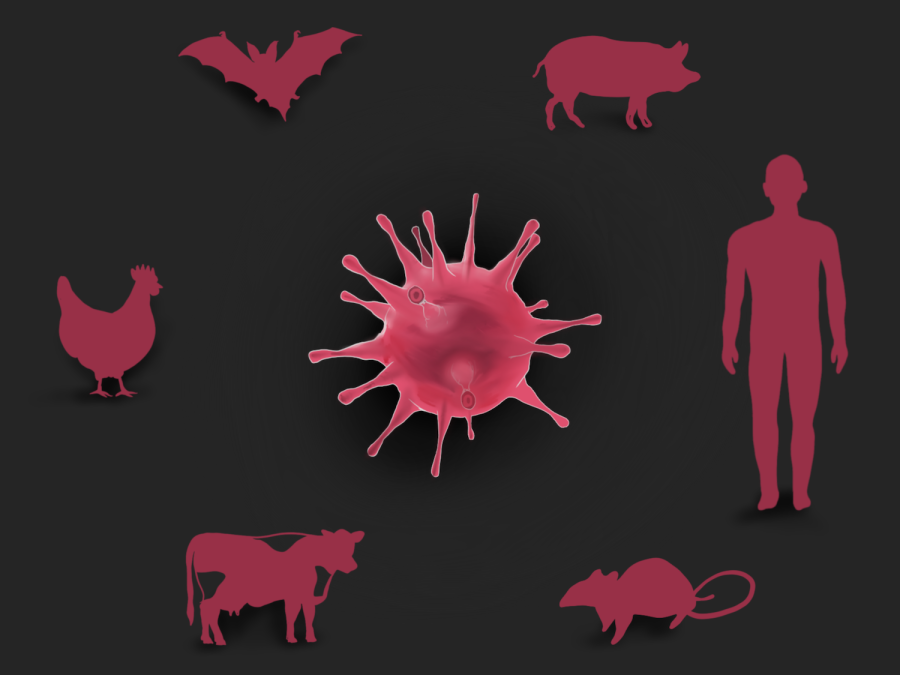The US may be vulnerable to zoonotic diseases, NYU, Harvard researchers say
Scholars from NYU and Harvard University argue that United States policies governing wildlife are insufficient to protect against diseases that are transmissible between animals and humans.
(Illustration by Aaliya Luthra)
March 2, 2023
Current United States biodefense laws may be insufficient to prevent the spread of zoonotic diseases, which spread between animals and humans, according to a recent editorial from academics at NYU and Harvard University. The editorial, published in Science Magazine, raises concerns about government agencies being unable to regulate wildlife policies and discusses past instances of diseases moving from livestock to people in the United States.
The piece objected to the U.S. government’s National Biodefense Strategy, which was released in October 2022 and did not include new policies for zoonotic disease prevention. In the piece, Dale Jamieson, a professor at NYU’s Center for Environmental and Animal Protection and Ann Linder, a research fellow at Harvard’s Animal Law & Policy Clinic, argued that the United States is ignoring potential zoonotic disease threats.
“One of the things that happens when you have a crisis, or potential crisis, is you sometimes see how broken our systems are in responding to them,” Jamieson told WSN. “You have different agencies who don’t really know what other agencies are doing and half cross-cutting mandatas, and in some cases, huge regulatory gaps.”
They noted that the United States has a history with zoonotic diseases — most from between 1950 and 2000 began in the country — and that it has the highest amount of wildlife imports in the world, but that livestock often do not receive health or safety checks upon arrival. They also said that government mandates for many federal regulatory agencies, specifically the U.S. Fish and Wildlife Service and the U.S. Department of Agriculture, are unclear and can be restrictive.
In October, the DOA announced that it would open a new laboratory called the National Bio and Agro-Defense Facility, which will allow the agency to conduct zoonotic disease research that requires more safeguards against potential lab outbreaks. Lisa Hensley, a zoonotic disease researcher at the lab, said in the announcement that it will help to ensure the safety of the United States’ food supply.
“As a community, we have not paid enough attention to the risks posed by viruses jumping from animals to people, from humans to animals or from animals to animals,” Hensley said. “The security of our food supply is an incredible vulnerability to our public health and agricultural health, and we need to be proactive in this area.”
Jamieson also said that the lack of regulation in animal agriculture is dangerous because of how much the United States relies on livestock for its food supply. It processed over 10 billion livestock in 2022 alone, according to the editorial. In the piece, Jamieson raised concerns over the continuing spread of avian influenza viruses among livestock in the United States, which he said have reached poultry markets and farms.
“What is needed is not simply for agencies to do their jobs better or to paper over the gaps, but a fundamental restructuring of the way that human–animal interfaces are governed,” Jamieson and Linder wrote. “The U.S. is still very far from taking such decisive action, or even recognizing its responsibility in generating these global risks.”
Contact Ujji Bathla at [email protected].

























































































































































